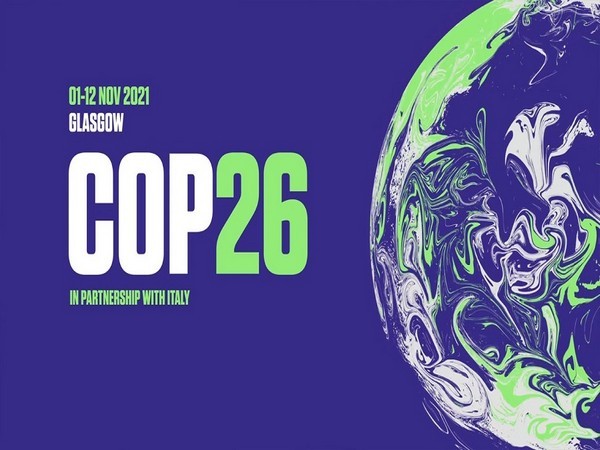Interview: ICRC calls on COP26 to prioritize world's vulnerable populations
Nov 04, 2021

Geneva (Switzerland), November 4: Robert Mardini, director general of the International Committee of the Red Cross (ICRC), has called on the more than 100 world leaders attending the ongoing United Nations (UN) climate summit, to prioritize the world's most vulnerable populations who face the dual challenge of armed conflicts and the dire consequences of climate change.
Mardini spoke to Xinhua on Tuesday on the sidelines of the ongoing 26th session of the Conference of the Parties (COP26) to the UN Framework Convention on Climate Change held in Glasgow, Scotland. He identified three main priorities for the participants.
"The first one is for the international community to acknowledge that actually people living in armed conflicts and in contests affected by climate change are the most vulnerable and are to be really prioritized. The second one is ... the collective bold effort from the international community to focus on genuine and meaningful mitigation measures to reduce carbon emissions and to avert the climate crisis in the first place," he said.
"And the third one is ... really linked to the most vulnerable (populations). They should be top of the list in terms of support, (but) the fact of the matter today (is) they are totally neglected."
Between 2018 and 2020, Mardini was head of the ICRC's delegation and permanent observer to the UN in New York. During his 22 years with the ICRC, he also led the ICRC's Water and Habitat Unit, which managed projects in over 40 countries, such as Rwanda and Iraq.
On the eve of the current COP26 meeting, he visited Mali, where he gained first-hand experience of how climate change is pushing families to the brink in a country also battered by nearly a decade of conflict.
"I think Mali and many of the countries in the Sahel region exemplify really the 'perfect storm,' where communities find themselves being at the intersection of conflicts, violence, and also the consequences of climate change that are more and more visible," he said.
"I was in Mali last week and I could see first-hand how those double challenges are hitting hard communities ... I spoke with a woman for instance in a (displaced) camp, and she told me how she lost her house twice. The first time she lost it to floods, the second time she lost it to violence because of armed competition and violence around shrinking water resources and grazing lands," he said.
"This is the story of millions of people living across the Sahel, in Niger, in Burkina Faso, including in places like Afghanistan. Out of the 25 countries that are today the most vulnerable to climate change, 14 are actually countries that are torn by armed conflict. So, you can imagine how challenging it is for those populations to face this double adversity," he noted.
According to the UN, climate hazards have already damaged around 80 percent of the farmlands in the Sahel region, drastically reducing food sources. Some 29 million people in the region were reported to need humanitarian assistance and protection, more than ever before.
Whether in Mali, Niger or Afghanistan, where the ICRC is present, "if I put really myself in the shoes of ordinary people who are struggling with the consequences of climate change, with the more frequent floods, drought, desertification, declining of water tables and hardship, I think that we are reaching a point where ... the collective action needs to be taken by all states today."
Mardini said that the ICRC has witnessed conflicts that are more fragmented, more deadly for the civilian population, and are harder and harder to solve politically.
"So the key here is for the international community and the warring sides to reach settlements, to really create political consensus to solve conflicts in the long term," he said, urging the international community to "put everything in place to ensure respect for the rules and for international humanitarian law, which when respected, will reduce human suffering."
Asked about China's role, Mardini said that "the decisions China will take will have a great influence on the planet. The good news is that the ICRC and China are already working a lot together."
He said that the ICRC has had a delegation in Beijing since 2005 and has been engaging with China everywhere across the globe "in the very contexts that are on the frontline of conflicts and climate change, trying to engage in multilateralism ... to ensure respect for international humanitarian law."
"I myself had a very good experience in New York. We genuinely engaged with China in the UN around the importance of multilateralism and international humanitarian law, which, by definition, is a great example of how multilateralism can work to garner support around the basic rules that would limit the human suffering ... We are really committed to continue engaging with China."
Mardini said he considers multilateralism a central element of humanitarian diplomacy.
"The planet is burning with the massive challenge around climate change and I think what is happening in Glasgow, even if not perfect, is still important to make sure that all countries can rally around the common goal."
"I'm sure that China has a huge role to play in this endeavor to make sure that multilateralism is also focused on very concrete problems that are putting millions of people under huge pressure today," he said.
Source: Xinhua









